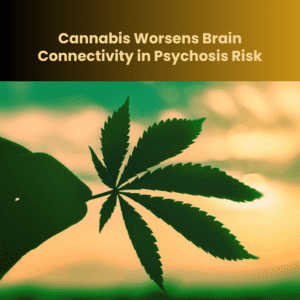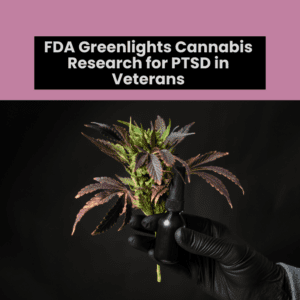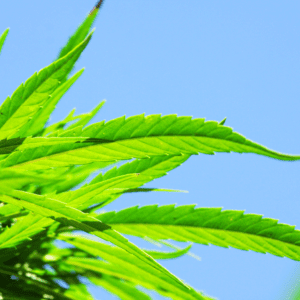Hemp Is Legal, But Drug Tests Can’t Distinguish It from Cannabis

Hemp Products Triggering THC Positives Lead to Severe Consequences
Across the United States, individuals who legally consume hemp-derived products are facing serious repercussions due to positive drug tests for THC, the psychoactive compound associated with marijuana. In states like Alabama, North Carolina, and Wisconsin, cases have emerged where individuals were fired, lost job opportunities, or even faced legal challenges, despite their claims of using legally purchased hemp products to manage pain, anxiety, or other health issues.
The Case of Madeline in Wisconsin
Madeline, not her real name, was employed at a food manufacturing facility in central Wisconsin when a workplace accident left her injured. To manage the pain, she used cannabinol-infused gummies, a product derived from hemp and marketed as legal under state law. However, when her employer required a drug test, the results came back positive for THC, and she was subsequently fired.
Madeline’s attorney, Aaron Halstead, is contesting the termination, arguing that she was within her legal rights to use hemp products. “Our claim is that she was terminated for the use of a lawful substance, which is illegal under Wisconsin statute,” Halstead said. He likened her situation to someone being fired for smoking cigarettes after testing positive for nicotine.
Legal Confusion Stemming from Hemp’s Federal Legalization
The confusion surrounding these incidents can be traced back to the 2018 Agriculture Improvement Act, commonly known as the farm bill, which legalized hemp at the federal level. While hemp and its derivatives, such as delta-8 THC, are legal, they can still trigger positive results on standard drug tests designed to detect marijuana.
This is due to two primary factors. First, hemp products are legally allowed to contain up to 0.3% delta-9 THC, which can accumulate and cause a positive test result. Second, delta-8 THC, a compound similar to delta-9, can also trigger positive results due to its nearly identical chemical structure.
Employment Setback in North Carolina
Scott, another individual affected by this issue, moved to North Carolina from California and was offered a job as a manufacturing associate at a biopharma company. However, after a routine pre-employment drug test returned positive for THC, the offer was rescinded. Scott had been using hemp-derived products to manage symptoms of post-traumatic stress disorder, including depression and anxiety.
“The only thing I was consuming was federally legal hemp,” Scott explained. Despite this, his explanation was dismissed, and he was left without the job, leading to financial hardship and a near-homeless situation.
The Impact of THC Positives in Alabama
In Alabama, Sarah (not her real name) faced severe consequences after using delta-8 to manage pain and morning sickness during her pregnancy. Following a positive drug test at the hospital, her newborn was also tested and found positive for THC. Despite her explanation that she had only used legal hemp products, social workers temporarily removed her children, placing them with their grandparents two hours away.
Alabama is one of the most punitive states regarding drug use during pregnancy, and Sarah and her husband had to undergo months of drug tests and legal battles before being reunited with their children. “It was completely ridiculous that we were being run through the gauntlet for a legal product,” Sarah said.
Challenges in Law Enforcement and the Judicial System
The legal distinction between hemp and marijuana presents significant challenges for law enforcement and the judicial system. Hemp products can look and smell identical to marijuana, making it difficult for officers to distinguish between legal and illegal substances. In Texas, Maj. Mark Melson of the Texas Department of Public Safety testified that drug-sniffing dogs and officers cannot reliably differentiate between hemp and marijuana based on sight or smell.
Similarly, in North Carolina, the state bureau of investigations recognized that legalizing hemp would complicate marijuana prosecutions, as defendants could claim their possession was legal hemp rather than illegal marijuana. This lack of distinction has led to confusion and potential miscarriages of justice.
Lack of Oversight and the Risk of Misuse
Despite the federal legalization of hemp, the market remains largely unregulated, with products often lacking clear labeling and potency information. This has led to cases where hemp products exceed legal THC limits, as reported by 13News in Indiana, where five out of seven delta-8 products tested contained illegal levels of delta-9 THC.
The U.S. Food and Drug Administration has characterized the situation as “a big human guinea pig experiment,” warning of the potential dangers of these products. Legal experts have also expressed concerns that the lack of oversight could lead to disproportionate prosecution of people of color, who historically face higher rates of marijuana-related arrests.
Moving Forward: The Need for Better Regulation and Consumer Protection
The stories of Madeline, Scott, and Sarah highlight the urgent need for clearer regulations and better consumer protection in the hemp product market. While hemp is legal, its similarities to marijuana in both chemical structure and appearance have created a legal gray area that leaves consumers vulnerable to unintended consequences.
As the hemp industry continues to grow, lawmakers and regulators must address these challenges to ensure that legal hemp users are not unjustly penalized. Until then, individuals who rely on these products for their health and well-being may continue to face significant risks in their personal and professional lives.











